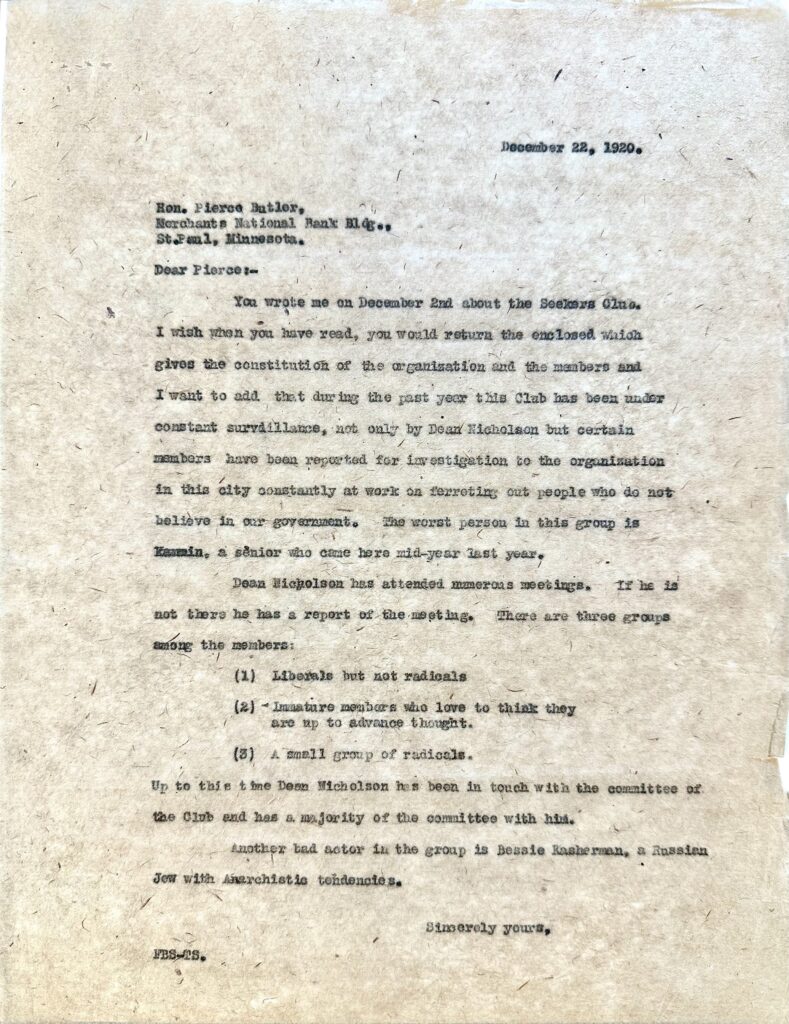In 1920 Dean Edward Nicholson authorized the formation of the Seekers Club, a left-wing organization whose members met to discuss political issues of the day. Many of its invited guests were University faculty. Nicholson engaged employees who worked for him to spy at the weekly meetings of the club, to record all of their names what was discussed, and who spoke. Nicholson then passed this information to others, including Fred B. Snyder who served not only as the chairperson of the Board of Regents, but was at the center of organizations of business and industry formed to stop labor from unionizing. During WWI, Snyder oversaw the committee to investigate citizens’ loyalty. He also was elected to several offices as a conservative Republican.
Fred Snyder wrote to Regent Pierce Butler, who would soon be appointed to the Supreme Court, to inform him of Dean Nicholson’s surveillance efforts. He identified two students by name, and emphasized that one was “a Jew with anarchistic tendencies,” linking Jewishness to radicalism in an overtly antisemitic fashion. Snyder assured Butler that students were “reported for investigation to the organization in this city constantly at work on ferreting out people who do not believe in our government.” Snyder was a founder of those very organizations, which included the Citizen’s Alliance and the Commercial and Civic Association, which also had surveillance functions.
All of these men disregarded students’ rights, and punished them for a wide variety of opinions to which they were entitled.
If you have information about the University of Minnesota in the 1930s that you would like to add, or reflections on other campus struggles, please contact us at prell001@umn.edu
Copyright 2017. All rights reserved.
Individual documents remain the property of their repositories — consult with those institutions about access and reuse.
